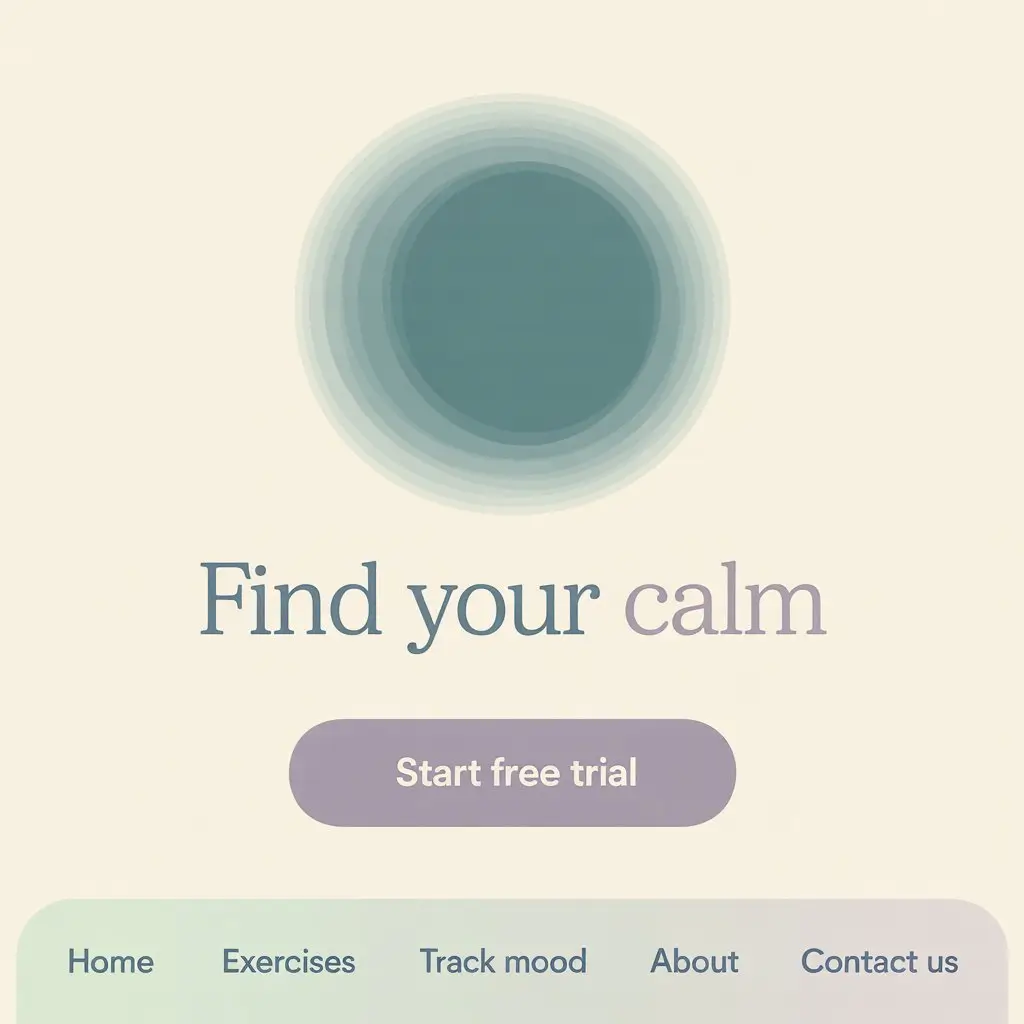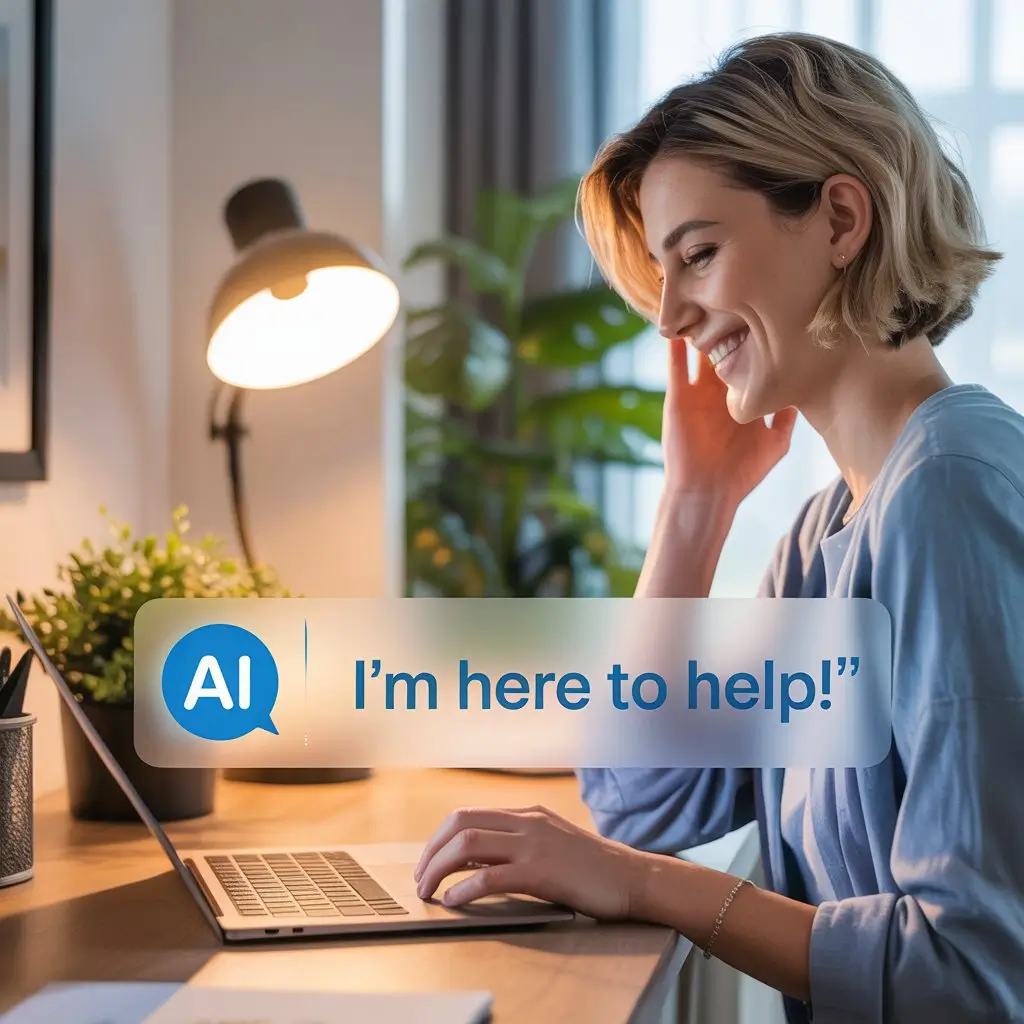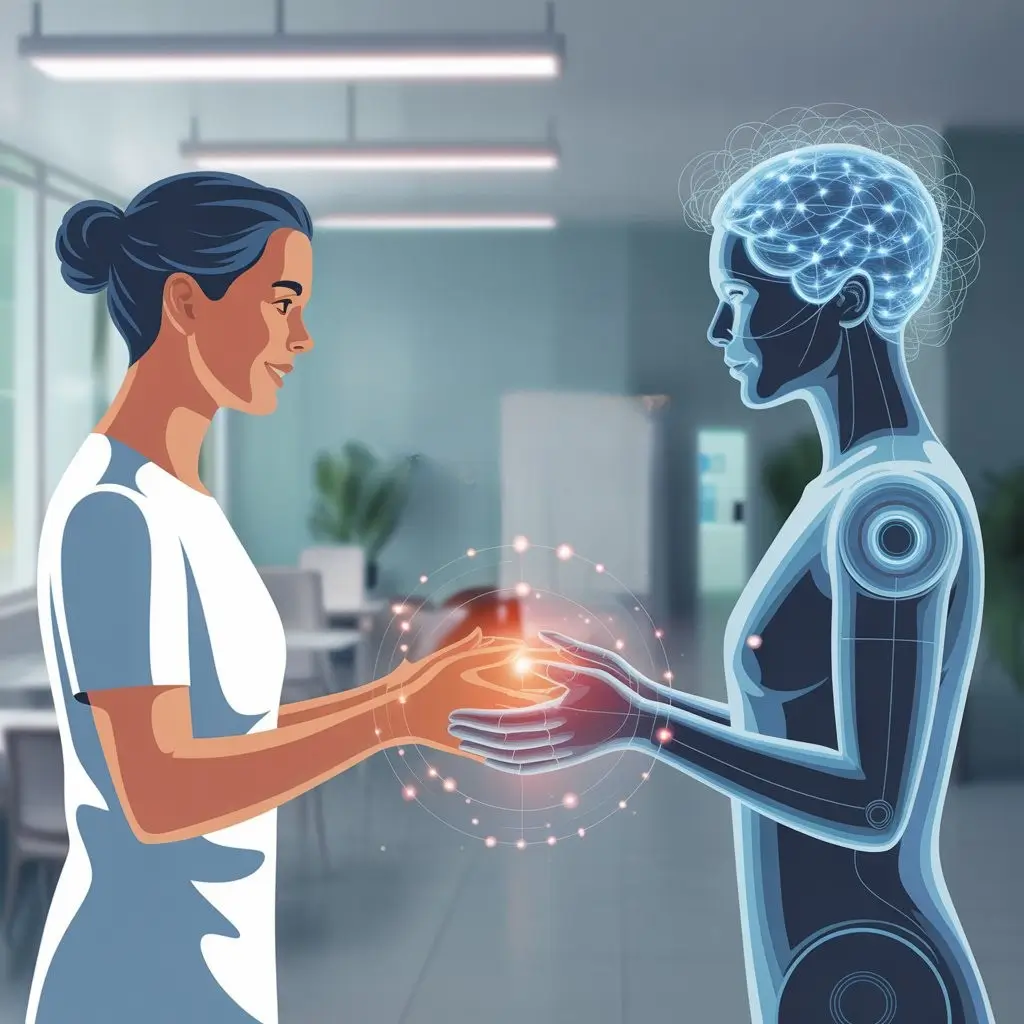Mental health plays a crucial role in our lives, and most individuals struggle with finding a stable provider of support. Sometimes, people are left alone between visits due to the long waiting time, short supply of treatment specialists, and mental illness-related stigma. Recently, AI has intervened to chip in and fill this gap. Mental health chatbots using AI provide an alternative path to immediate mental support on-demand conversationally. This paper discusses how such digital companions are transforming the field of mental health care by assisting patients between therapy visits and serving as an aid, a source of comfort, and a provider of practical advice on handling everyday challenges.
Mental Health Care Gap
Although more people are becoming aware of mental health, getting the appropriate care in time has been a major challenge globally. Most individuals experience a huge waiting list to meet skilled therapists or psychiatrists, and some of them wait months or even weeks before receiving assistance. The gap exists not only in this case but in the majority of cases; it is significantly larger in the rural regions and underprivileged communities where mental health professionals do not exist, or there is a shortage. Recent reports show that in some countries, as many as 90 percent of individuals who have severe mental conditions do not get any care, which is a major global shortcoming.
These differences are even enhanced further by socio-economic aspects. Less educated and low-income populations have a hard time accessing or paying for relevant mental healthcare care, and this situation leads to a chain of unmet needs and further deteriorating conditions. Even in workplaces where greater provision of mental health is provided to the employees, they are unable to fully use or access such services because of systemic trends or stigma.
Such a consistent lack means that many people are susceptible at a time when they are not receiving therapy or the ability to access professional support. It strongly emphasizes the necessity of novel solutions that can offer persistent, approachable assistance and contribute to closing the gap between conventional treatment and daily mental health.
What are AI mental health chatbots?
Artificial intelligence has invaded the field of technology, developing new tools that will help in promoting mental health. AI mental health chatbots have proven to have high potential. These chatbots are computer programs that utilize sophisticated algorithms to mimic a conversation with a human being. NLP allows them to comprehend and react to the users’ messages in real-time, giving them a certain level of connectedness and a feeling that they are not alone.
Such apps are widely used, and the most popular are the ones called Woebot, Wysa, and Replika. These apps are focused on providing emotional check-in, mood tracking, and therapeutic approaches, like cognitive behavioral therapy (CBT). Such chatbots provide coping strategy options to users that train them to cope with stress, anxiety, and depression through exercises based on individual needs.
In contrast to traditional therapy, AI chatbots can be used 24/7, so a person can talk to them whenever they need to narrate or receive any advice. Although they are not a substitute for professional attention, they will be a welcome addition to the phases when people cannot rely on human assistance, and, as such, they will assist users to adopt resilient characteristics and keep mental health intact in between the attendance of therapy sessions.

The advantages of using AI Chatbots between Sessions of Therapy
The AI mental health chatbots have become a useful resource that benefits people by providing 24/7 assistance to those working through mental wellness issues between scheduled visits with a traditional therapist. Studies indicate that these chatbots are capable of relieving symptoms of depression and anxiety and that they can do it safely and speedily since they are available at all hours of the day when human therapists are unavailable. According to a recent meta-analysis of 18 randomized controlled trials (with over 3,400 participants, the AI-based chatbots have shown significant gains in depression and anxiety symptoms, particularly incidents occurring after approximately eight weeks of using the corresponding tools14.
Availability is one of the main strengths of AI chatbots since users might contact them whenever they feel disturbed or require advice. This urgency makes it easier to eliminate the essence of isolation and to give support in times of trouble or indecision. Also, chatbots can use evidence-based methods (like cognitive behavioral therapy (CBT), mindfulness exercises, or mood tracking), which help users train to engage in coping strategies regularly and can boost emotional resilience.
The other important advantage is personalization. With time, AI chatbots can analyze users’ input, adjust their responses, and customize interventions to individual needs, increasing engagement and effectiveness. This science-based method helps users stay motivated and maintain mental wellness practices between sessions.
Although AI chatbots are not an alternative to professional therapy, they are a feasible add-on, as they consist of gaps in care, particularly in regions with scarce mental care resources or when the waiting times are long. Their capacity to provide scalable and cost-effective support is what makes them interesting entrants into the mental health care ecosystem.
It should be mentioned, however, that certain research indicates that positive outcomes of chatbot interventions might decrease once an intervention is over. Therefore, it is necessary to continue using chatbots or incorporate them with other traditional forms of care to make interventions effective.
Ethical and Hurdles of AI Mental Health Chatbots
Along with the benefits, AI mental health chatbots also possess significant limitations and ethical concerns that should not be overlooked. One of such bigger issues is their inability to empathize with fellow humans. In contrast to therapists who present human communication and emotional intelligence, chatbots are based on algorithms and fail to comprehend the nature of human feelings. This may curtail their performance, particularly on intricate or critical mental complications.
Another major problem is the threat of improper diagnosis or recommendation. AI chatbots’ work is based on predefined answers and feedback training files, which can miss the context details and focus on individual variations of mental health in a person. This may be used incorrectly, which may result in inaccurate diagnosis/advice, which is detrimental when users base their diagnosis on the tool alone despite the lack of professional supervision.
Data security and privacy also play a major part. As chatbots have access to sensitive personal information, it is necessary to guarantee a high level of encryption and clear data processing policies to keep users’ trust and preserve confidentiality.
Also, the possibility of over-dependence on technologies to the extent that users replace professional therapy with chatbots is a barrier as it postpones and prevents the usage of clinical help. There are also problems linked with accessibility since, to use chatbots properly, a person must have internet access and certain digital literacy, which not everyone has.
Ethical implementation of AI chatbots requires effective communication of their functionality and boundaries, incorporation of human resources, and continuous research to enhance security and success. Finding a middle ground between innovation and caution will do wonders for utilizing AI’s potential and not undermining the quality of mental health care.
The Integrated Future Complementary as opposed to Replacement
AI mental health chatbots do not aim to substitute human professionals engaged in providing mental care but to assist professionals in improving mental care delivery in so-called blended care models. Such models mix the power of AI tools and the experience of humans to help offer more seamless and individual assistance.
One of the major communication strategies being employed to integrate chatbot AI is providing between-session support. More and more therapists also prescribe using certain chatbots to reinforce treatment methods between visits and assist patients in practicing coping mechanisms and monitoring their moods on the fly. Such sustained interactions may enhance the treatment and ensure that patients are still attached to it.
Waiting list management is also involved in AI. Chatbots, like Wysa, are being used in countries with long waiting lists for mental health services, such as Australia and the UK. Chatbots offer evidence-based support in the lead-up to conventional therapy. Preliminary evidence indicates that the practice has the potential to improve the severity of symptoms prior to the start of professional treatment.
Moreover, with the data obtained through communication with a chatbot, clinicians will be able to learn more about patients’ symptom patterns and progress, which will help them focus on them during face-to-face sessions. The supplementation of assessment and monitoring enables the therapist to make effective changes to treatment plans.
With stepped care, an AI chatbot may be implemented for the initial intervention, and a professional human intervention needs to start when more complicated symptoms or conditions are present. The method aids in optimum resource usage, and patients will be accorded the best possible care.
In general, it can be said that future mental health care will be based on the synergy between the power of AI and the presence of human therapists. Chatbots can reach more people, thus expanding the levels of care and access to it without diminishing the importance of the human connection that the human therapist brings about.

Future of AI mental health chatbots: trends and innovations in 2025
By the time we enter the year 2025, AI mental health chatbots will be advanced and more complex and deployed within the larger mental health care ecosystem. Among these trends is an increase in hybrid human-AI well-being chatbots used in Egyptian schools, places of employment, and healthcare. The chatbots offer 24-hour and non-judgmental services as users can discuss their worries or rehearse a challenging dialogue in a secure, anxiety-free space. An example can be found in the platforms of Germany (Clare&me) and the UK (Limbic Care), which provide constant emotional support and refer clients to intuitive resources if necessary1.
The other good trend is using AI chatbots as clinical decision-support tools. Mental care providers are increasingly hedging on AI to speed up office duties, evaluate client information, and help diagnose, releasing them to concentrate on dumb care. With an increasing share of psychiatrists and psychologists using AI tools, such as ChatGPT, to answer clinical questions, write documentation, and communicate with clients, the trend is toward an AI-enhanced mental health care practice2.
Customization is also on the rise, with conversation or chatbots learning to change their responses depending on how the mood is monitored in real-time, the context, and the user’s actions. Adaptive personalization will help make the AI assistance seem more empathetic and relatable, enhancing interest and treatment compliance. Future chatbots will likely be able to detect mental problems early by analyzing the speech patterns, social media activity, and physiological data provided by the wearable, which will allow timely intervention before the issues become severe56.
Although these positive trends emerge, scholars make the point that ethical safeguards are necessary regarding privacy, data discrimination, and chatbot therapy weaknesses. Other possible undocumented effects, including loneliness or increased reliance, have been identified through studies, and thus, equal integration of chatbot use with human care cannot be underemphasized1.
What is in store in the future? AI chatbots will prove to be strategic partners in mental health, providing reliable digital companions that enhance therapy, track progress, and provide crisis-sensitive support. They will increasingly democratize access and allow care to reach further distances, and they will provide a framework where AI and human clinicians will cooperate to provide more effective and customized mental health care in the future46.
Conclusion
It is important to adopt AI chatbots to improve mental health and wellness.
AI mental chatbots are quickly reshaping the ways of providing care, providing available, tailored, and instant support to people who conflict with their mental health. This technology will become more advanced in 2025, and chatbots are becoming useful companions who can fill the time patches between therapy sessions, eliminate a sense of loneliness, and give people helpful means of coping.
Although they are not a substitute for human therapists, AI chatbots supplement conventional care by offering round-the-clock support, anticipating and identifying problems at an early stage, and continuously monitoring a user. The inclusion of AI in mental health care has the potential to reach more people, particularly underserved groups with limited access, long waiting times, or feelings of discrimination.
Nevertheless, the success of AI in mental health in the future will be determined by how these issues, such as privacy, ethical application, and the use/inclusion of chatbots in a balanced system based on a human-centered approach to care, can be solved. AI chatbots can be beneficial tools that safeguard and support mental health when designed and developed purposefully and in collaboration with other parties such as technologists, clinicians, and people.
In conclusion, adopting AI-based mental health solutions should be seen as an encouraging way to achieve the dream of a more inclusive, accessible, and successful mental healthcare environment where technology and human care are mutually beneficial in promoting the well-being of all.

